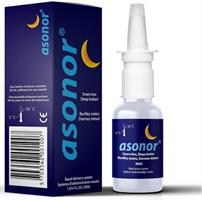Snoring can be a nuisance, not only for the person who snores but also for their bed partner. It can disrupt sleep, cause daytime fatigue, and even strain relationships. But what if there were simple, proven ways on how to stop snoring and improve your sleep quality?
In this article, we will explore effective methods to put an end to snoring and leave you and your partner with a peaceful night’s sleep.
Key Takeaways
-
Side sleeping and mouthpieces can reduce snoring, while nasal strips, dilators, sprays and a healthy lifestyle can help prevent it.
-
Avoid alcohol and sedatives before bedtime to improve sleep quality & reduce snoring.
-
Consult a doctor if symptoms worsen or persist as this could be indicative of an underlying medical problem.
The Importance of Side Sleeping
Did you know that your sleep position can significantly impact your snoring? Sleeping on your side has been shown to reduce snoring by preventing the obstruction of air through the throat. This is because when you sleep on your back, gravity can cause your tongue and soft palate to collapse to the back of your throat, blocking the airway and resulting in snoring.
Maintaining a side sleeping position throughout the night can be supported by using a body pillow or other techniques, which can also prevent you from involuntarily sleeping on your back.
A body pillow aids in keeping this position by providing necessary support and hindering any involuntary roll onto your back. Consistently sleeping on your side could lessen the intensity of your snoring, paving the way for a more peaceful night’s sleep for both you and your partner.
Switching to side sleeping may not only help reduce snoring but also alleviate symptoms of sleep disorders like obstructive sleep apnea syndrome. So, if you’re struggling with snoring or suspect a sleep disorder, try changing your sleep position. It’s a simple and effective way to improve your sleep quality and breathe easier during the night.
Mouthpieces for Snoring Relief
Mouthpieces, such as mandibular advancement devices and tongue stabilizing devices, are recommended by the American Academy of Sleep Medicine and the American Academy of Dental Sleep Medicine as a way to treat snoring.
These oral appliances work by adjusting the positioning of the jaw, tongue, and soft palate, helping maintain an open airway during sleep and reducing snoring. Although mouthpieces can be effective in reducing snoring, they may also cause side effects.
Possible Side Effects
-
excessive salivation
-
dry mouth
-
jaw pain
-
facial discomfort
Following the instructions provided with the mouthpiece is vital, and professional consultation should be sought if any problems emerge.
If you’re considering using a mouthpiece to treat snoring, remember that there are alternative treatments available.
>> Check out SnoreRx Plus, our favorite snoring mouthpiece! <<
Snoring Related Treatments
-
Oropharyngeal exercises
-
Uvulopalatopharyngoplasty (UPPP)
-
Mouthguards
-
Continuous positive airway pressure (CPAP)
-
Somnoplasty
-
Oral appliances
-
Palatal implants
-
Radiofrequency tissue ablation
You may need to experiment with different treatments, as some may help you find the one that works best for you.
Nasal Strips and Dilators: Clearing the Airways
Nasal strips and dilators can be effective in reducing snoring by increasing the space in the nasal passages and decreasing airflow resistance, allowing for easier breathing.
Nasal strips are adhesive strips that can be affixed to the bridge of the nose, expanding the nasal passage and improving breathing. Internal nasal dilators that can be inserted into the nose are also available.
The benefits of using nasal strips and dilators are numerous, including the enlargement of nasal passages, reduction in airflow resistance, and facilitation of easier breathing, all contributing towards snoring reduction. However, if nasal strips and dilators fail to deliver the desired results, it’s necessary to explore other treatment options.
Over-the-counter or prescription allergy medications, surgery to rectify a deviated septum, and reducing exposure to dust mites and pet dander may also be beneficial in treating snoring.
Remember, finding the right solution to your snoring problem may take some trial and error. Don’t be discouraged if nasal strips or dilators don’t work for you. There are plenty of other treatments available to help you achieve a good night’s sleep.
Nasal Sprays for Snoring Reduction
Nasal sprays can be a helpful tool in alleviating snoring by reducing inflammation and nasal congestion in the nasal passages, promoting better airflow during sleep. These sprays are used in clinical sleep medicine to treat various sleep disorders and can be obtained over-the-counter or by prescription.
Difficulty with inhalation, such as a blocked airway or stuffy nose, can lead to snoring.
To reduce snoring, try the following:
-
Adjust your sleep position to promote better airflow. Sleeping on your side instead of your back can help prevent the relaxation of throat muscles that contribute to snoring.
-
Use a nasal spray to clear your nasal passages and improve your breathing. Adherence to the instructions on the nasal spray packaging is crucial.
-
Consult a physician if any adverse effects occur, as improper usage of nasal sprays could exacerbate snoring.
Incorporating nasal sprays into your nighttime routine could be the key to a snore-free night. Reducing inflammation and congestion in your nasal passages promotes smoother airflow, contributing to a better night’s sleep for both you and your partner.
Establishing a Sleep Schedule
Establishing a consistent sleep schedule can help prevent snoring by reducing overtiredness and promoting healthier sleep patterns. When you’re sleep-deprived, your throat muscles relax more, increasing the likelihood of airway obstruction and snoring.
The American Academy of Sleep Medicine and Sleep Research Society recommend that adults get 7-9 hours of sleep per night to avoid sleep deprivation. To achieve this, try going to bed and waking up at consistent times each day, even on weekends. This will help regulate your body’s internal clock and promote better sleep quality.
In addition to a consistent sleep schedule, losing weight can also help reduce snoring. Improving your sleep habits and maintaining a healthy weight can serve as preventive measures against snoring, leading to more restful nights.
Hydration and Snoring Prevention
Staying adequately hydrated can prevent snoring by:
-
Reducing the stickiness of secretions in the nose and soft palate, allowing for smoother airflow
-
Preventing secretions from becoming too viscous, keeping your airways clear
-
Reducing inflammation, which can contribute to snoring
Adequate water intake is important for maintaining hydration and preventing snoring.
In addition to its role in snoring prevention, proper hydration can also benefit your overall well-being by facilitating the elimination of toxins and improving concentration. To maintain proper hydration, you can:
-
Drink plenty of water throughout the day
-
Avoid sugary drinks and alcohol
-
Drink water before bed
-
Keep a glass of water by your bedside for sipping during the night
Staying hydrated is a simple yet effective way to reduce snoring and improve your overall health. Drinking enough water aids optimal body function, promotes smoother breathing, and contributes to a better night’s sleep.
Weight Loss and Snoring Reduction
Losing weight can help reduce snoring by decreasing the amount of tissue in the throat that can obstruct the airway during sleep.
Exercising and losing weight may be enough to address snoring issues, but it’s important to approach weight loss in a healthy manner. Crash diets are not recommended, as they rarely result in sustainable outcomes and can be potentially hazardous. Instead, follow a healthy diet to achieve desired results.
To promote weight loss, reduce overall caloric intake by consuming smaller portions and more nutrient-rich foods, and incorporate regular exercise into your daily routine. By doing so, you will not only lose weight but also experience a reduction in airway obstruction, improved respiration, decreased inflammation, and enhanced sleep quality for individuals who snore.
Shedding those extra pounds not only boosts your overall health but also decreases the likelihood of snoring. A healthier lifestyle paves the way for improved sleep quality and tranquil nights for both you and your partner.
Avoiding Alcohol and Sedatives
Alcohol and sedatives can negatively impact your snoring by relaxing the throat muscles and increasing the likelihood of airway obstruction. These substances, including tranquilizers like lorazepam (Ativan) and alprazolam (Xanax), can result in increased muscle relaxation and more snoring.
Abstaining from alcohol, sleeping pills, and sedatives can contribute to snoring reduction and enhance your sleep quality, which can eventually help eliminate snoring.
Instead of relying on these substances to help you sleep, try incorporating relaxation techniques like deep breathing exercises, meditation, or progressive muscle relaxation into your bedtime routine to stop snoring.
Avoiding alcohol and sedatives before bed can significantly reduce snoring and lead to a more restful night’s sleep. Finding alternative ways to relax and unwind sets the stage for better sleep and a snore-free environment.
Quitting Smoking to Reduce Snoring
Quitting smoking can reduce snoring by decreasing inflammation and irritation in the upper airway, allowing for better airflow during sleep. Smoking cigarettes has been linked to numerous health risks, including coronary heart disease and lung cancer. Quitting smoking not only reduces your snoring but also enhances your overall health.
If you’re a smoker who snores, consider seeking support to quit smoking. There are various resources available, including nicotine replacement therapy, counseling, and support groups. Quitting smoking takes you a significant step closer to reducing snoring and improving your sleep quality.
Remember, quitting smoking is not only beneficial for reducing snoring but also essential for your overall health. Deciding to quit smoking is an investment in a healthier future and better sleep quality for both you and your partner.
When to Consult a Doctor
If snoring persists or becomes snoring worse, it may be necessary to consult a doctor, as it could be a sign of a more serious condition such as sleep apnea. Snoring can be a sign of an underlying medical problem. It shouldn’t be overlooked and must be addressed as soon as possible.
A physician may use various diagnostic methods to identify snoring, including:
-
Signs and symptoms
-
Medical history
-
Physical examination
-
Imaging tests, such as X-rays, computerized tomography scans, or magnetic resonance imaging, to evaluate the airway.
If you’re concerned about your snoring or suspect a sleep disorder, don’t hesitate to consult a medical professional. They can help determine the underlying cause of your snoring and recommend the most appropriate treatment options for people who snore, ensuring you get the restful sleep you deserve.
Summary
In conclusion, there are various proven methods to help stop snoring and improve sleep quality. From simple changes like adjusting your sleep position and staying hydrated, to more involved treatments like using mouthpieces and quitting smoking, you have several options to explore.
Remember, finding the right solution may take some trial and error, but don’t give up. Your path to a snore-free, restful night’s sleep is within reach.
Frequently Asked Questions
Can snoring be cured naturally?
Snoring can be reduced or eliminated naturally by sleeping on your side, using a nasal strip or mouthpiece, losing weight, quitting smoking and avoiding alcohol. Further, treatments like mouth exercises or surgery can also help reduce snoring.
What causes bad snoring at night?
Snoring can be caused by relaxed throat tissues during sleep, sleeping on the back, lack of sufficient sleep, poor muscle tone, and being overweight. These can all contribute to narrowed airways, which causes vibrations leading to snoring.
Can changing my sleep position help reduce snoring?
Changing sleep position to your side can help reduce snoring as it prevents airway obstruction.
Are mouthpieces an effective solution for snoring relief?
Mouthpieces can be an effective solution for snoring relief by repositioning the jaw or tongue to open up the airway during sleep.
How can nasal strips and dilators help with snoring?
Nasal strips and dilators can help reduce snoring by increasing the space in the nasal passages and decreasing airflow resistance, allowing for easier breathing.
References
- The Diagnosis and Treatment of Snoring in Adults. https://www.ncbi.nlm.nih.gov/pmc/articles/PMC6947688/
- Treatment options for snoring and sleep apnoea. https://www.ncbi.nlm.nih.gov/pmc/articles/PMC539538/
- Sleeping in an Inclined Position to Reduce Snoring and Improve Sleep: In-home Product Intervention Study. https://formative.jmir.org/2022/4/e30102






